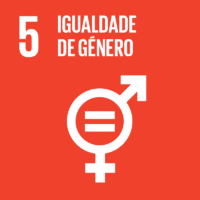Ciência_Iscte
Publicações
Descrição Detalhada da Publicação
Stay away or stay together? Social contagion, common identity, and bystanders’ interventions in homophobic bullying episodes
Título Revista
Group Processes and Intergroup Relations
Ano (publicação definitiva)
2020
Língua
Inglês
País
Estados Unidos da América
Mais Informação
Web of Science®
Scopus
Google Scholar
Esta publicação não está indexada no Overton
Abstract/Resumo
Two studies explored the link between social contagion concerns and assertive bystanders’ behavioral intentions in homophobic bullying episodes. Study 1 (N = 216) examined if adolescents’ social contagion concerns (i.e., fear of being misclassified as gay/lesbian) relate to decreased behavioral intentions to help victims of bullying, by increasing negative attitudes towards lesbians and gay men. Study 2 (N = 230) further explored if inclusive identity representations (i.e., one-group or dual-identity) were related to decreased concerns of social contagion, thereby increasing adolescents’ assertive behavioral intentions. Results (partially) confirmed both expected mediations: social contagion concerns were associated with decreased assertive behavioral intentions via increased negative attitudes towards lesbians and gay men (Study 1); one-group representations, but not dual-identity representations, were associated with more assertive behavioral intentions via decreased social contagion concerns (Study 2). These findings extended previous studies illustrating the underlying mechanisms through which social contagion concerns and common identity affect assertive bystanders’ behavioral intentions.
Agradecimentos/Acknowledgements
--
Palavras-chave
Bullying,Bystanders,Common identity,Social contagion
Classificação Fields of Science and Technology
- Psicologia - Ciências Sociais
Registos de financiamentos
| Referência de financiamento | Entidade Financiadora |
|---|---|
| PD/BD/114000/2015 | Fundação para a Ciência e a Tecnologia |
| UID/PSI/03125/2013 | Fundação para a Ciência e a Tecnologia |
Contribuições para os Objetivos do Desenvolvimento Sustentável das Nações Unidas
Com o objetivo de aumentar a investigação direcionada para o cumprimento dos Objetivos do Desenvolvimento Sustentável para 2030 das Nações Unidas, é disponibilizada no Ciência_Iscte a possibilidade de associação, quando aplicável, dos artigos científicos aos Objetivos do Desenvolvimento Sustentável. Estes são os Objetivos do Desenvolvimento Sustentável identificados pelo(s) autor(es) para esta publicação. Para uma informação detalhada dos Objetivos do Desenvolvimento Sustentável, clique aqui.

 English
English




